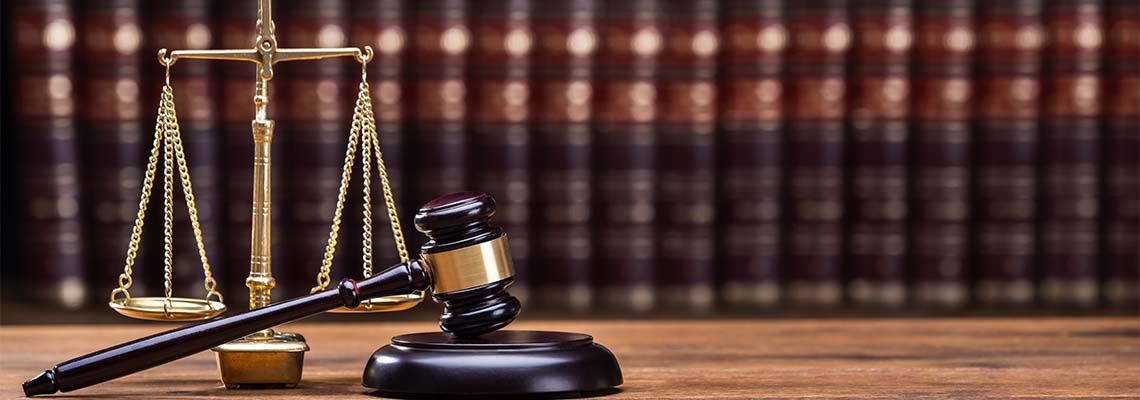We Represent You! SCHEDULE A FREE CONSULTATION

A Business’s Requirement to Give “Constructive Notice”
In legal terms, constructive notice is the equivalent of “should have known.” Constructive notice is the silent companion of actual notice—when a fact or condition is actually announced or obviously known.
The concept of constructive notice can be applied in various circumstances. For instance, when a person dies and probate is undertaken, the executor of the estate is required to post a notice in a relevant newspaper of the death, so creditors can have constructive notice to press a claim in probate court. When someone buys a property only to discover defects after the deal is concluded, that person should have known of the defects, that is, have had constructive notice through their own due diligence.
Constructive notice also applies to personal injury cases. Say someone falls on a slippery floor and is injured in a retail establishment. Constructive notice can apply to both the owner/operator of the business and to the injured person. The owner/operator should have known of the wet-floor condition, and the injured party should have known to expect dangerous conditions to exist. If matters go to trial, both plaintiff and defendant can rely on the concept of constructive notice.
If you or a loved one has been injured on someone else’s property due to a slip and fall or other accident, it’s natural to feel frustrated. During these difficult times, it’s important to reach out to legal guidance. At the Law Firm of Walter Gabriel, LLC, you’ll receive skilled detail-oriented counsel and skilled representation when you need it the most. Attorney Walter Gabriel will examine the circumstances that led to your injuries, advise you of your legal options, and help you move forward.
The Law Firm of Walter Gabriel, LLC serves clients not only in the Atlanta area but also throughout surrounding areas in Georgia, including Dunwoody and Alexandria.
The Legal Concept of Constructive Notice
Constructive notice applies to many different situations and areas of the law. In addition to personal injuries, premises liability, and real estate transactions, it also applies to purchases in general—and even to civil actions such as divorces and lawsuits. If Party A files a lawsuit against Party B but Party B claims never to have received notice, Party A could argue that it was part of the public record and thus Party B had constructive notice.
Georgia Code Section 23-1-17 on “Scope of Notice” states that “constructive notice, is that which arises out of a legal inference, or presumption strictly speaking….” When it comes to incidents such as a slip and fall or other accident on someone’s property, Georgia Code Section 51-3-1 states that a business or property owner/operator can be held liable for injuries caused by “failure to exercise ordinary care in keeping the premises and approaches safe….”
Premises Liability Claims in Georgia
Premises liability could apply to incidents that go beyond injuries sustained by a slip and fall on a wet floor. Even dog bites put the animal’s owner at risk if the visitor on their property was there legally—that is, was not trespassing.
If a property owner has a swimming pool but does not restrict access, and someone is injured using it without permission, the owner might be liable. Even if you invite someone to your home for dinner but fail to warn them of a condition that could be dangerous, such as a loose handrail on the stairs, you may be subject to premises liability if an injury occurs.
Under Georgia law, you as a property owner or operator must “exercise ordinary care” to prevent injuries to others. Ordinary care means not only to correct unsafe conditions but also to warn others that such conditions exist and should be avoided.
If someone is injured, their claim may hinge on the concept of constructive notice—that is, that you should have known of the dangerous condition even if you didn’t have immediate and direct knowledge of it. If you, for instance, operate a retail establishment that sells containers of liquids, you should know that one or more of these containers might fall to the floor and create a dangerous surface for customers.
Ultimately, every case is different. It’s vital that you reach out to a personal injury attorney for guidance in your specific situation.
How Constructive Notice Figures into a Personal Injury Claim or Lawsuit
If you’re making a claim for injuries based on premises liability, you will need to show that the owner/operator had constructive notice—that they should have known of the dangerous condition that led to your injuries.
Of course, they can also claim that you were a contributor to the accident under the concept of comparative negligence. They can argue, for instance, that you didn’t see the floor was wet because you were too busy talking on your smartphone. It then becomes a contest over who was more at fault.
Under comparative negligence, if you are, for instance, deemed 25 percent at fault, any settlement or award you achieve will be reduced by 25 percent. If you are judged to be more than 50 percent at fault, you cannot win or claim anything.
Get Experienced Legal Advice
If you or a loved one has suffered injuries due to someone else’s negligence in or around Atlanta, Georgia, reach out to the Law Firm of Walter Gabriel, LLC to pursue your legal options. Even filing an insurance claim can be challenging, as the insurer will try to pin as much of the blame on you as possible. Let Attorney Walter Gabriel handle the insurance company and its claims adjusters, or file a personal injury lawsuit if necessary. Set up a consultation today.
